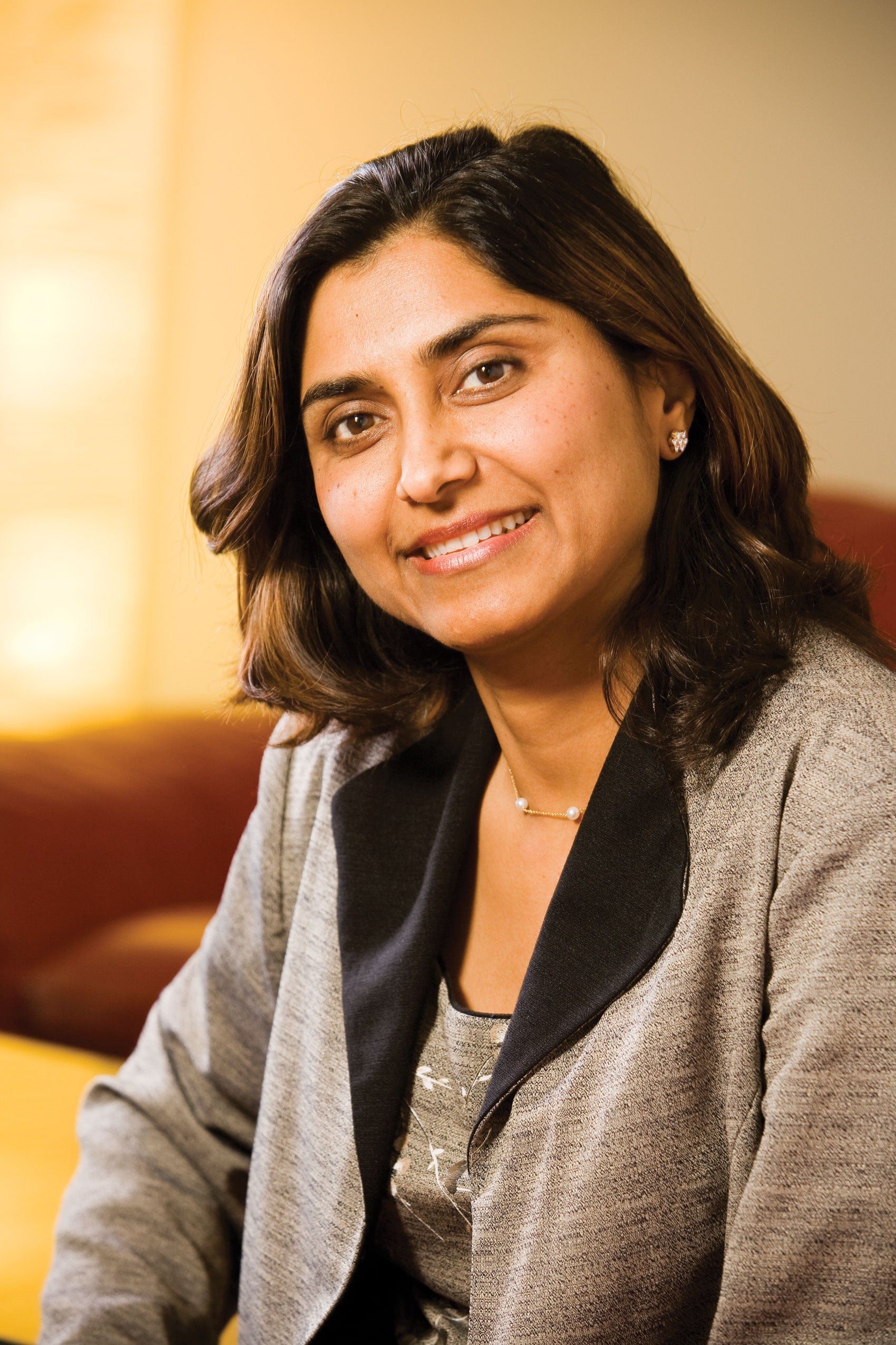‘My clients know I’ve been where they are’
Sheela Murthy LL.M. ’87 founded the Murthy Law Firm in Baltimore County, Md., in 1994. Her firm, of which she is managing partner and president, employs 14 lawyers who primarily practice U.S. immigration law. Murthy has been admitted to practice as an attorney in New York, in Maryland and before the U.S. Supreme Court. Before founding her firm, she practiced with White & Case in New York City, and Gordon, Feinblatt and the firm then called Shapiro & Olander, both in Baltimore. Murthy, who speaks French, English and Hindi, emigrated from India in 1986. She is active in the American Immigration Lawyers Association, and she is regularly invited to present papers and speak on various complex immigration law issues before AILA and other national and international organizations.
Why did you endow a financial aid fund for LL.M.s and an immigration law travel fund at Harvard Law School?
I wanted to throw light on immigration law at Harvard Law School. Immigration is a symbol of who we are as an American people, and we really need to do more to educate people about it. It’s a complex field and it’s subject to constant change. It deserves greater study. I hope to help change that.
How will the fund be administered?
We hope to create two separate endowments. First, I hope to provide partial scholarships to deserving LL.M. students who want to study immigration law and are in need of financial aid—for either tuition or books. I worked as a security guard during part of my time at the law school, which made it hard to concentrate on my studies. I want to make it easier for future students to take advantage of what the law school affords. Second, for the immigration travel fund, I want to encourage immigration law teachers to attend meetings and conferences to get trained on complex and ever-changing immigration issues, so that they can provide better services to the immigrant population they serve.
Were there any particular courses or professors that influenced the direction you took after law school?
Harvard Law School professors asked the right questions and created a lively discussion in class. My colleagues were sharp and smart, and I was influenced very much by them. I do recall a tax law course taught by Professor [Alvin] Warren that was fantastic. Tax law might not seem to have much to do with immigration law, but both areas deal with federal law and state law components. Also, it does help to understand tax law when making charitable contributions.
You took a 40 percent pay cut to leave New York’s White & Case and join a smaller Baltimore firm. From there, you started your own firm. Why?
In a large firm, I felt like a cog in a wheel! I didn’t have that sense of good karma that comes from doing good works. But with immigration law I felt I could forever change not just one immigrant’s life and fortunes, but also their family’s. I want to show the world and my clients that immigrants are a powerful voice, and not to be ignored. My clients know that I feel their pain and that we care. I’ve been where they are.
What are the biggest challenges for immigration lawyers today?
Immigration has so many gray areas, so many areas where there is no formal guidance. On top of that there are unexpected occurrences. This summer, the visa priority dates moved forward unexpectedly. We had to think outside the box, rework our entire system, hire 20 to 30 additional summer interns, lease extra space, hire more lawyers, just to be able to file for the thousands of qualified applicants within a narrow window of time. We succeeded, thanks to a wonderful team effort and the “can-do” attitude.
